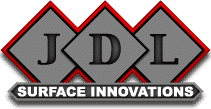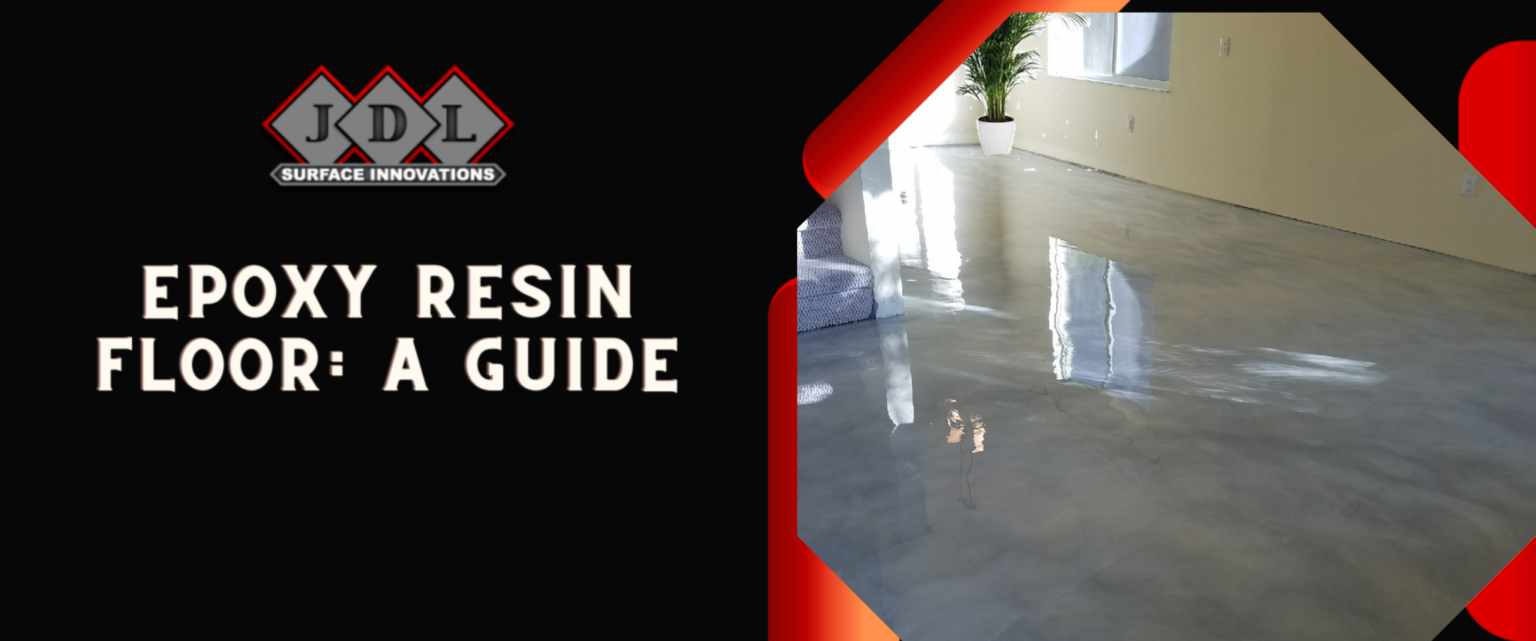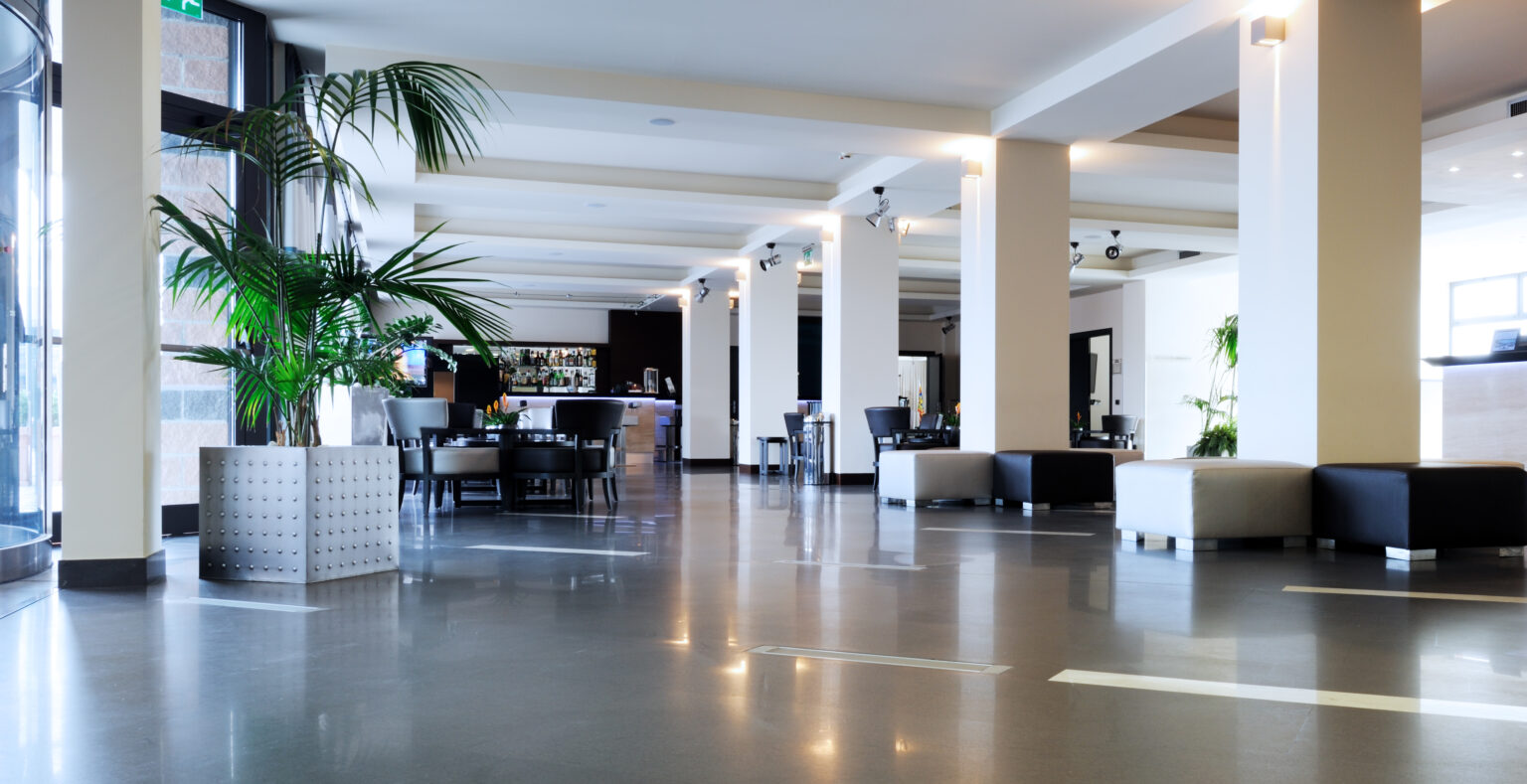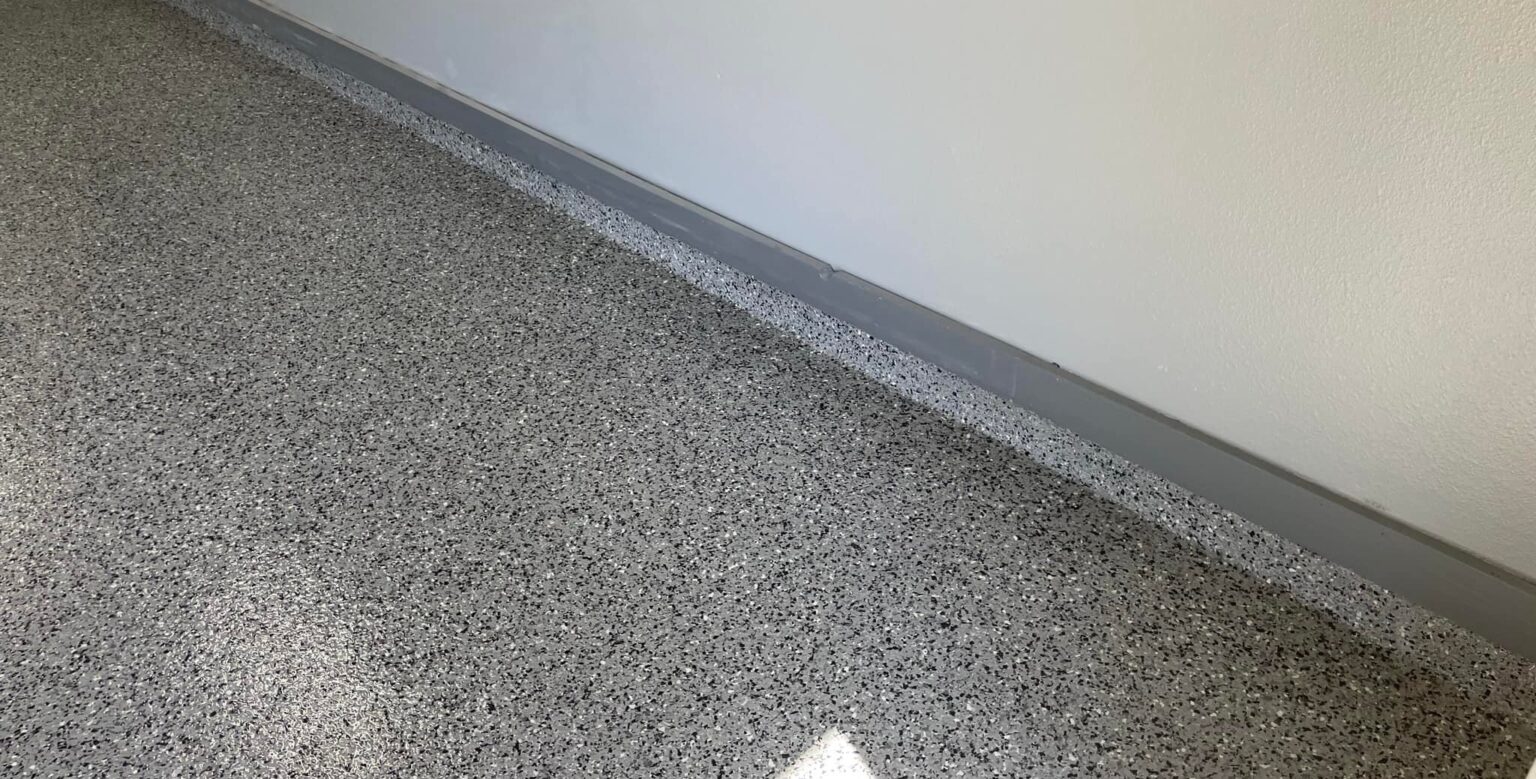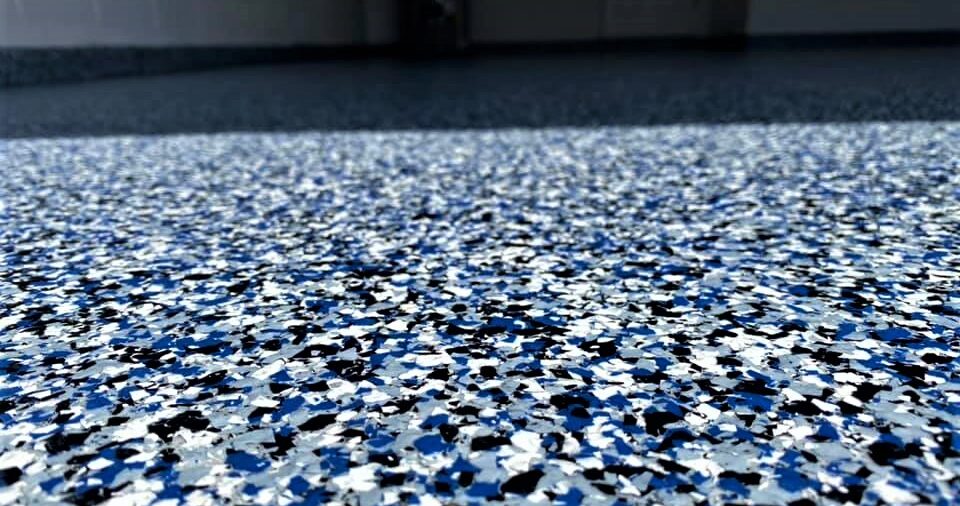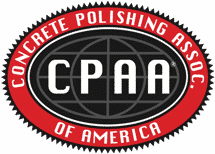What is Epoxy Flooring?
Epoxy coating is chemically different from regular floor paint. Resinous epoxy flooring is made up of a 2-part epoxy system. It is a mixture of hardeners and polymer resins. The epoxy resin and the hardener bond with each other and the floor when properly mixed. This chemical bond results in a stiff plastic material that is highly durable and resistant to degradation.
Types of Epoxy Floor Coating
Aside from gaining popularity in the commercial industry, one can use epoxy on concrete floors for residential areas. It comes in various types, and you can explore multiple epoxy floor art for your home. Below are a few types of epoxy floor that you can consider.
Here are the differences between all the various epoxy floor systems:
Solid Epoxy Floors
Are you looking for something simple yet versatile? Then, you can go for solid epoxy floors. They offer a variety of colors which you can apply almost anywhere. These solid epoxy resin flooring system finishes are ideal for rooms with a solid color and void of intricate or fancy design.
You will mostly find this design in buildings, convention halls, and restaurants. However, it can be a good choice for the kitchen, deck, living room, bathroom, or driveway.
Flake Epoxy Floors
If you want a little more color on your basement floor, garage, or any other room or surface, you can choose flake epoxy flooring.
This type of floor uses acrylic chips or flakes that come in many colors making it more artsy and decorative. As a result, it gives the surface a sleek appearance.
Epoxy flooring contractors apply the multi-colored flakes when the coating is still wet, giving the surface a vibrant look. Apart from making the floor beautiful, the flakes have the advantage of making the floor less slippery.
It provides more grip, which prevents falls and other accidents. Due to this, this type of flooring is ideal for the kitchen, swimming pool, locker rooms, sports venues, showrooms, and places with high foot traffic.
Ready For A State of The Art Floor?
Graveled Epoxy Floors
Are you looking for epoxy resin flooring ideas? You can choose this type. It is customizable and comes with intricate designs. If you are creative, graveled epoxy flooring is ideal for you.
You mostly find this type in stores, buildings, and restaurants to add their logo. However, as a homeowner, you can use this aspect to add your designs and decorative details for that personalized interior décor look.
Metallic Epoxy Floors
A metallic epoxy floor finish is the best option if you want that decorative look. This epoxy coating uses a metallic additive, allowing you to design the floor with different colors, accents, and effects. You may have come across the swirling design, which is the most common. Installers use a roller or a brush in twists to achieve this by spreading metallic pigments.
If you want to add a touch of your personality to solid epoxy, you can include the shiny metallic finish. It can be gold, ruby, copper, silver, or more. This type offers you a matte finish for decorating living rooms, bedrooms, kitchens, and other spaces.
Self-Leveling Epoxy Floors
Do you need to cover uncoated areas or existing concrete surfaces? Choose self-leveling epoxy flooring. This type is ideal for smoothening old, cracked, and damaged concrete floors. You can apply it to new concrete surfaces if you want a refined look. It’s a versatile coating in many colors, ideal for residential, commercial, and industrial use.
You will mostly find this type of floor in sports places, office buildings, athletic facilities, warehouses, or showrooms. It is also an ideal garage epoxy resin floor for a DIY project when you want to smoothen out a damaged surface. In residential, you can also use it in bathrooms or kitchens.

Pros And Cons Of Epoxy Floor Coating
Pros
Chemical Resistant
Epoxy flooring is ideal for commercial areas as it is resistant to stains and chemicals. You can wipe the spillage without worrying that you will leave a stain. It doesn’t absorb the spillage into the surface.
High Resistance
Choosing garage floor epoxy is ideal because it fortifies the area and blocks harmful elements. In addition, epoxy is resistant to shock-meaning crashes that will not affect the concrete. It is also heat and water-resistant. As such, it is ideal for waterproofing, making a good flooring choice for the basement.
Long-lasting
Epoxy coating lasts longer than many types of flooring. If you install the floor properly, it will last along. Some brands offer a guarantee of up to 10 years. It is good to look for the best epoxy resin floor installers to avoid repeating the work.
Durable And Strong
Epoxy floor coatings for concrete help enhance its ability to hold the weight. It also adds stability to the surface, helping to carry heavy loads and avoid wear and tear.
Protection
Epoxy floor offers protection as it is a sealant. It keeps the concrete below the material from wearing and tearing. As such, it works as a preservation overlay. Microbes have fewer hiding places in monolithic, fluid-applied floors than the numerous seams and crevices in tile flooring.
Cost-Effective
The epoxy resin flooring price is pocket-friendly. Furthermore, it does not require additional sub-flooring materials, significantly reducing the installation cost. More so, the fact that it is long-lasting makes it cost-effective in the long run.
Safety
Many industries and commercial projects choose epoxy floor materials for their safety. Investing in high-quality industrial proxy floor coating, garage epoxy floor, and others gives you a polished look with increased safety. Also, since the surface gets slippery when wet, using anti-slip mixes helps improve traction.
Cons
Toxic Fumes
If you are doing DIY interior epoxy flooring, you will notice it has a strong smell when wet. Sometimes, it may emit an ammonia-like smell after you start applying. The emitted fumes are toxic and can have side effects on anyone around. They can cause inflammation in the eyes, throat, and nose and irritate the lungs.
However, it does not pose a health risk once the epoxy is fully cured. To counter this problem, you need to wear protective gear and keep everyone away from the area until fully dry. Also, sanding the floor can cause health problems when you inhale the dust.
Takes Long to Harden Fully
Once installed, it takes several days for the epoxy flooring to harden fully. Epoxy flooring installers advise that the floor should be left to dry for long and in warm conditions. Subjecting it to a slow curing process makes it more durable and stronger.
If you install the flooring in a home you live in, it can be inconvenient. It can take as long as 30 days for some installation.
It’s Not a Floor on Its Own
You can not use Epoxy flooring on its own. Mostly, you will find epoxy applied on top of the concrete flooring or steel. We also have epoxied wood floor. This aspect makes the material a temporary flooring solution that will need new coats if it wears. It can be a disadvantage when it happens regularly. To avoid wear and tear, you need professional epoxy floor contractors.
Slippery When Wet
Resinous epoxy flooring is non-porous, meaning it creates smooth surfaces. Therefore, when wet or oily, the surface can be dangerous. It is a serious disadvantage of epoxy flooring. If you have children or the elderly in the home, it can cause serious concern. However, there are ways you can mitigate this problem. The contractor can:
- Use silica in the final coating to add more grip.
- Get a maximum grip by adding aluminum oxide.
- Use shark grip in the last layer to add texture and resistance.
Installation Process
If you are attempting a DIY project, you will find that the epoxy floor installation process is quite tedious. It entails removing oils, grease, or any solvents. It would help if you also had ideal humidity levels as moisture can damage the floor.
Cold To The Touch
If you compare epoxy to hardwood floors, you will notice that a concrete floor, especially an epoxy-coated floor, is cold on your feet. This is a similar effect to tiles. However, you solve the problem by using an underfloor heating system on your floor before installing the epoxy floor system.
Where Can I Install Epoxy Flooring?
An epoxy floor is ideal for kitchens, bathrooms, garage, basement, swimming pool area, locker rooms, sports venues, showrooms, and places with high foot traffic.
Its best quality is its ability to seal and provide a waterproof and non-corrosive protective layer. Epoxy Resin is a versatile material used in countless applications, not only in the industrial and commercial sectors but also for residential purposes.
It is an indispensable and helpful material for all those necessary repairs, construction projects, and maintenance. Epoxy is used by many homeowners as well as professional engineers and contractors.
Conclusion
Epoxy floors are an excellent option for various industrial and commercial environments, offering both aesthetics and performance. Let us know if you have a flooring project that may call for our flooring expertise.
